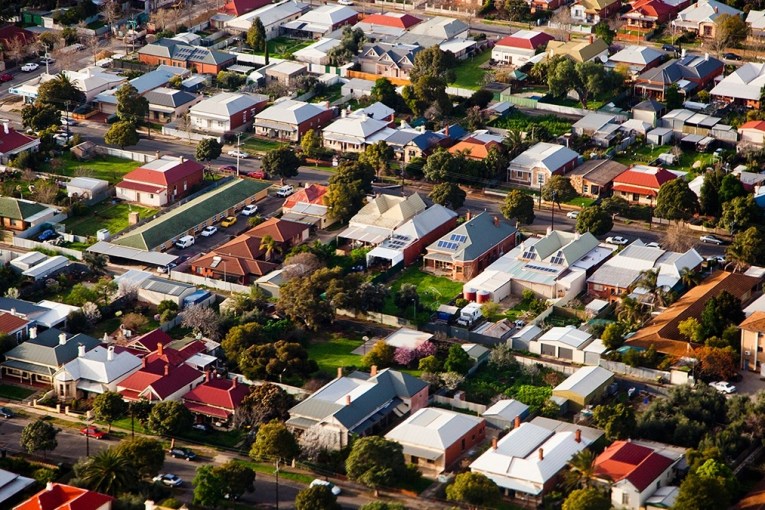The many dangers of investing in property overseas


Shutterstock
Compared to Australia’s often-exorbitant house prices, cut-price property deals in countries such as the USA can seem like a dream come true.
But does it make financial sense to invest in a house or apartment that’s thousands of kilometres from your home turf – or is it just an easy way for ill-prepared buyers to lose a stack of money?
“I think it really depends on the circumstances. For people who’ve really done their research and really understand it, I think you can be very successful,” says Denise Honey, an international tax partner at Pitcher Partners. “And sometimes you can just get lucky.”
• Looking for property? Search nationwide here
• Where to buy when prices are high
• No winter chill for property market this year: experts
However, Ms Honey says potential buyers who fail to carry out proper due diligence, or understand that every country comes with its own set of regulations and taxes, can easily come unstuck.
In the US and UK for example, inheritance or estate tax means that if a homeowner dies, the beneficiary or estate could be left footing a tax bill that could be worth up to 40 per cent of the property’s value, says Ms Honey.

The right city to invest in may not be the same city you live in. Photo: Shutterstock
“There are a lot of costs that I think people don’t realise. I think it’s really essential that people get the appropriate advice,” she says.
“Where I think people really run into problems is when they don’t know the right questions to ask.”
For cheaper properties, Ms Honey says prospective buyers need to weigh up whether potential returns are worth the time and money involved in the initial due diligence.
It’s also essential to check foreign ownership restrictions, she says, to “make sure you’re not being sold a property you’re not allowed to own”.

Unlocking a good property deal requires careful planning. Photo: Shutterstock
Then of course, there’s the risk of dramatic shifts in the foreign exchange rate.
One way to hedge your bets is by purchasing the property in the local currency by trying to set up an account there, but even this can be fraught with difficulties for the first-time investor.
Costly lessons
Anh-Lan Nguyen, an Australian-based property consultant at Top Property Deals USA, learnt a hard lesson early when a person claiming to be a financing expert in the US lost her $1000 in application fees and then stopped returning her calls.
“At the end I couldn’t get a loan because I was a foreigner,” says Ms Nguyen, who has since had success buying several properties in the US that she rents to tenants.
Ms Nguyen says Australians will likely be slugged with higher interest rates if they try to get financing through a US bank, so her clients usually pay in cash or use the equity from other property investments.
She specialises in buying properties in Atlanta, most of which have been subject to foreclosure.
Ms Nguyen says while their prices are starting to edge up slightly, there are still many properties going for around the $75,000 mark – around half of what they might have sold for at the peak of 2006.
Despite the cheap prices, Ms Nguyen warns that it’s essential to do some thorough research on the property, and the people you’re getting to help you make the transaction.
She says a friend of hers bought a property near Ohio for about $50,000, only to find out it was worth tens of thousands of dollars less, and that it was in a bad neighbourhood that tenants or property managers didn’t want to touch.
“Check the neighbourhood,” warns Ms Nguyen. “If no one wants to manage your property, you know that’s a big red flag.”
Of course a successful holiday can also often be the inspiration for an investor – first-time or otherwise – to snap up their own little piece of paradise.
Northern neighbour
Nathan Ryan, the Australian owner of Bali Realty, says about 75 per cent of his clients are Australians looking for an investment/lifestyle property.
“Typically they are frequent visitors to Bali … spending an average four to six weeks in Bali per year, and then the rest of the time they are looking to get a return on their investment through holiday rentals of their property,” says Mr Ryan.
He says in Indonesia, foreigners are not legally able to own freehold property title. Instead they can buy a long-term lease, which typically ranges from 25 to 35 years.
Mr Ryan says the owner still has the same rights, and can sell the property at any time – as well as being able to expect a rise in property value.
Rental returns in Bali are typically much higher – at six to 10 per cent net, after all costs – than Australia, says Mr Ryan.
He says one difference which many Australian buyers are not aware of is that Indonesian banks will not lend against leasehold property.
As in any country, buyers should seek legal advice to avoid the potential pitfalls, says Mr Ryan.
“Too often we see buyers trust the advice of friends or so-called ‘experts’, only to find out later that what they were told or promised was not accurate or true.”








